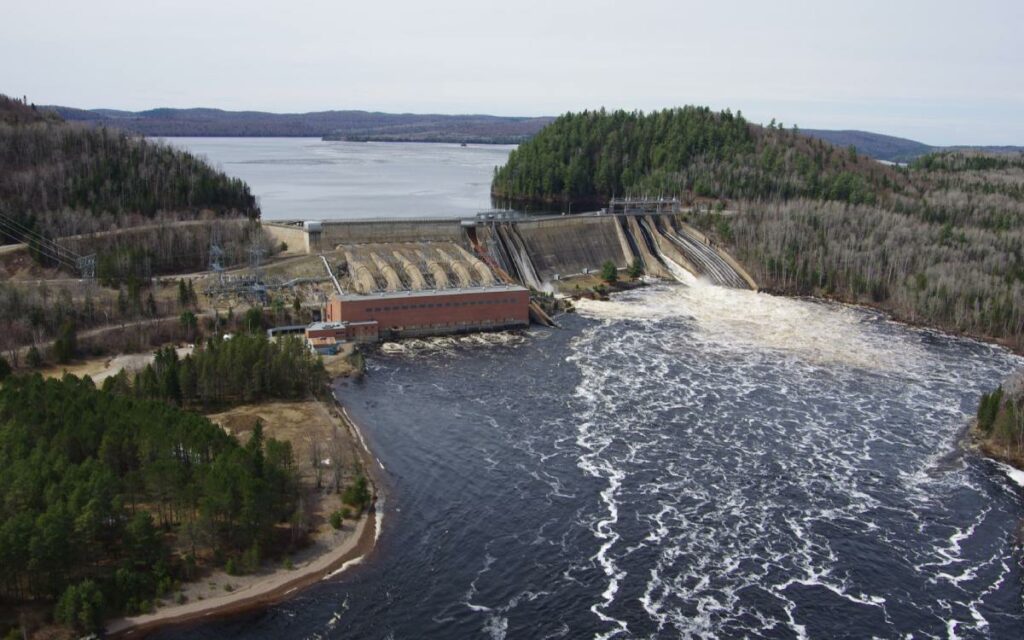
Exploring the societal risks of Canada’s renewable energy policy and the implications of potential power disruptions, shedding light on the challenges of shifting exclusively to electricity as the primary energy source. Photo credit: Facebook/Hydro-Quebec
The Government of Canada’s current policy is that we must take extraordinary measures to “decarbonize” the generation of electricity by eliminating all fossil-fuel based generation, electrify the entire economy, and base future electricity generation entirely on renewable energy sources such as wind, solar, biomass and hydroelectric generation. Some provincial governments have supported this policy and a number of municipalities now lobby for even faster implementation of it. Rarely, however, is the public asked to consider the risks of such an approach in the event of electricity supply interruptions.
What would it mean to the average person if there were blackouts lasting two days? What would happen if the blackouts lasted two weeks?
These are not unrealistic possibilities. Power interruptions are an everyday occurrence in many developing countries. Hardly a year passes without blackouts lasting several hours to a few days in Europe and North America. Weather events such as high wind storms, floods, and other “natural triggers” regularly disrupt power deliveries for varying periods of time. Major blackouts rooted in technical failures, lasting weeks, have occurred in parts of North America and Europe over the last twenty years. Other intentional man-made causes, such as cyber and terrorist attacks, have the potential to create widespread and prolonged power failures.
Electrical energy system planners do what they can today to minimize the risks of disruption and to respond quickly to resupply power to consumers when an interruption occurs. However, today electricity accounts for less than 40% of the final energy consumption in industrialized countries, and only about 20% of final energy consumption on a global basis. The power outages that we have experienced in the past only affected part of people’s needs. Yet, we are told that in future we should make electricity the sole source of supply.
What would happen when a blackout occurs?
The first things you might notice are the loss of electric lighting, especially at night. Your computer and telephone won’t work. You can’t watch television or listen to the radio. You dig out that long-forgotten box of candles and wish you still had matches to light them with.
Things become more of a bother when you think about all the food in the refrigerator and freezer that may go bad if the power stays out much longer. If you use an electric stove, you cannot cook and you cannot order food from restaurants because they probably cannot cook either.
During the hot days of summer, the air conditioning stops and indoor temperatures become quite uncomfortable, especially in apartment buildings or offices where one cannot open the windows. In winter, the furnace may stop working (correction: it will stop working if it has been electrified), temperatures drop quickly and you start to wear sweaters and a coat indoors. If the blackout lasts for several hours and you live in many parts of Canada, you worry about your water pipes freezing and bursting.
You try to drive to work or to take the children to daycare. If your car is all-electric, you will not be able to recharge it. If you can drive, when you come to an intersection that usually has traffic lights, you will find they don’t work, so traffic is moving through on a snail’s pace. If you decide to get some cash at an automated teller, you find that it does not work. Your credit cards cannot be read, as the system is down. If you do still have an internal combustion engine car, you can’t buy gasoline at the service station because the pumps run on electricity.
The city’s water supply runs on electrically-powered pumps, so you cannot get fresh water. Within a day or two at most, you cannot use the toilets and you cannot take a bath or shower.
If you live in a high-rise apartment building or work in a high-rise office, you find that the elevators don’t work. Anyone in an elevator when the power went off will need emergency help.
The people in hospitals are in dire straights. Medications that require refrigeration run out. If the situation lasts so long that the back up generation systems (powered of course by oil products) fail, the lights go off, systems needed to warm newborn babies don’t work, and ventilators don’t work. Operations become virtually impossible. People die.
Pharmacies might be left without insulin or vaccines, or have bottlenecks in drug supply. There would be short- and long-term impacts on the production and distribution of medicine (e.g. the supply of pharmaceuticals) some of which could become unavailable in the early stages of the blackout.
If the blackout persists for weeks, the conditions become much worse. The entire financial system runs on electricity so the banking system (i.e. the availability of credit) is affected. Much of industry depends critically on electricity, so plants begin to close. Retail outlets and restaurants close as well, so the number of unemployed sky-rockets. Transport of goods as well as people becomes impossible, especially if all or most vehicles have been electrified. Food shortages arise and quickly become unmanageable.
The social effects of all this may be especially worrisome. With many people in dire need, shortages everywhere and police services limited, looting and other thefts will increase. Indeed, all emergency services will be stretched beyond their limits. The number of fires would likely increase due to the use of candles in homes, and the failure of cooling and control equipment in industry.
Without either large back-up supplies of hydrocarbon-based energy generation (i.e. a duplicate system, also paid for by ratepayers), society would be left intolerably exposed to the risks of major and prolonged supply disruptions. Considering the significant dangers and other downsides of the direction of the current federal government, Canadians deserve a much more informed public discussion of this vital issue.
Robert Lyman is an energy expert who has spent over 40 years as an economist, manager and consultant working on a broad range of energy and environmental public policy issues, mainly for the Canadian federal government.




















